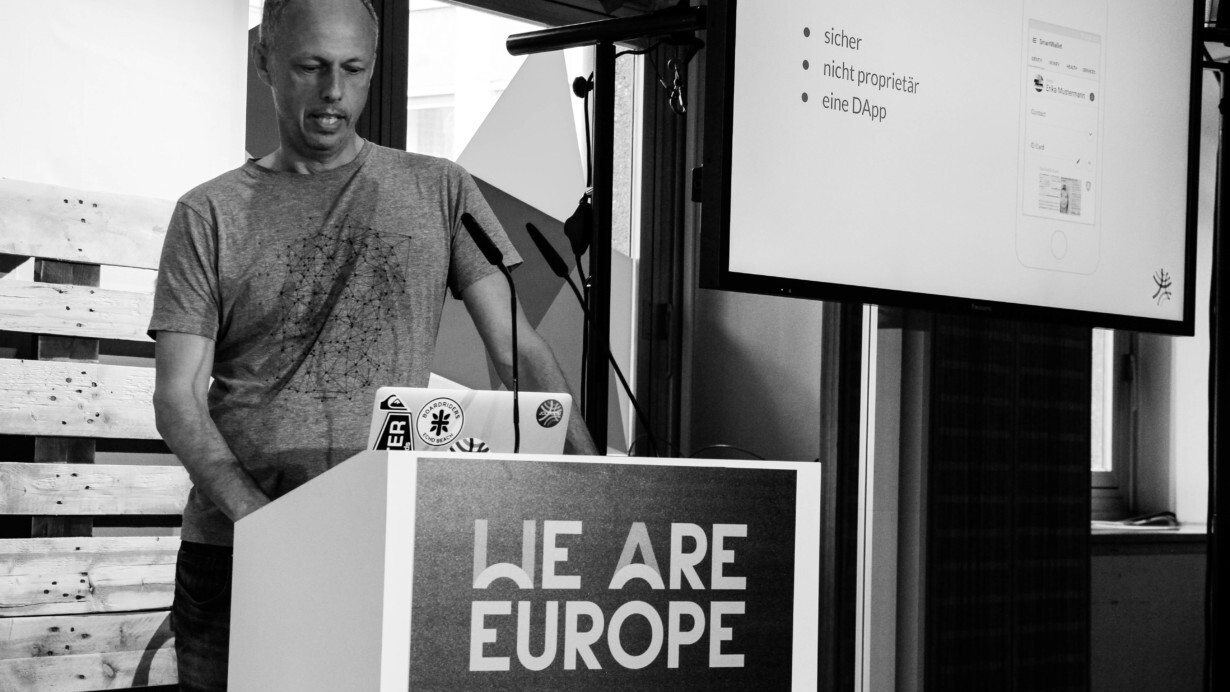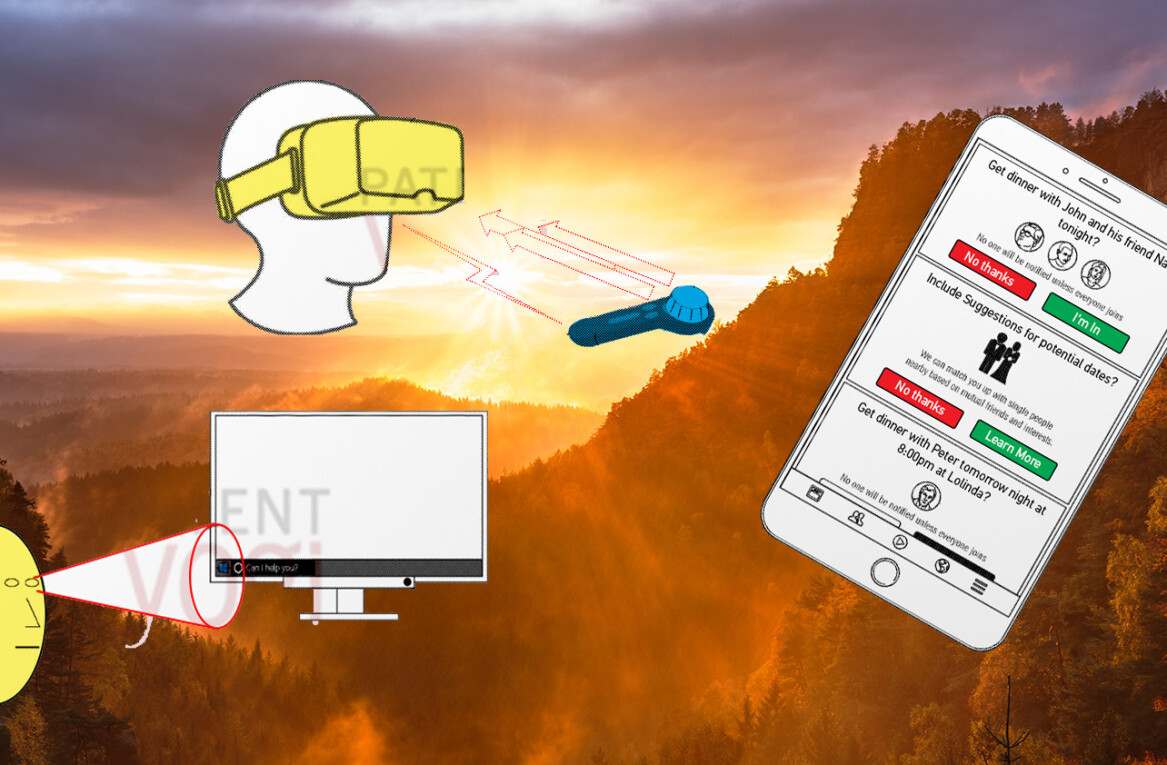
Every time is like this: filling forms with username, email, credit card, phone number, password and more. Otherwise, just use your Google/Facebook account as your identification. Then, get an app to manage passwords and, finally, go sharing and purchasing things.
There’s a reason behind the current platform-centric architecture we live in: when you’re not paying the product, you’re the product. Which basically means other parties own and sell your data. You pay free services with privacy and behaviour. Nothing new here, although many people still don’t care.
Recently at the C/O POP convention in Cologne, Germany, a round-table featuring specialists in Blockchain and Cryptography was examining ideas to change the web to User-Centric Identities and rebuild its architecture. When Joachim Lohkamp, CEO at Jolocom, had mentioned on stage that “we should claim our digital sovereignty”, it sounded inspiring and very reasonable.

From left to right: Joachim Lohkamp (Jolocom), Markus Sabadello (Danubetech), Marie Gutbub (Journalist), Daniel Erlacher (Elevate Festival)
Decentralization
Through blockchain (Bitcoin’s engine) and Solid (project led by Tim Berners-Lee, inventor of the WWW), It’s actually possible to everyone own a private key with data and content. Imagine a digital passport where you give access to products and services – social media, apps, wearables, e-commerce – at any time, keeping everything with you, even when deleting an account. No footprints.
“We always have to agree to Terms of Services of all these corporations – why don’t they have to agree to OUR terms?” – Daniel Erlacher
Although the concept of User-Centric Identities is powerful for people (privacy and control) and businesses (security and fewer verifications costs), from centralized platforms perspective it’s not appealing at all. Decentralization in large-scale could mean changing the core of successful business models.
Ultimately, the challenge is how to communicate and engage people on privacy and all those possibilities. For the internet itself, It could be a revolutionary evolution.
Get the TNW newsletter
Get the most important tech news in your inbox each week.




